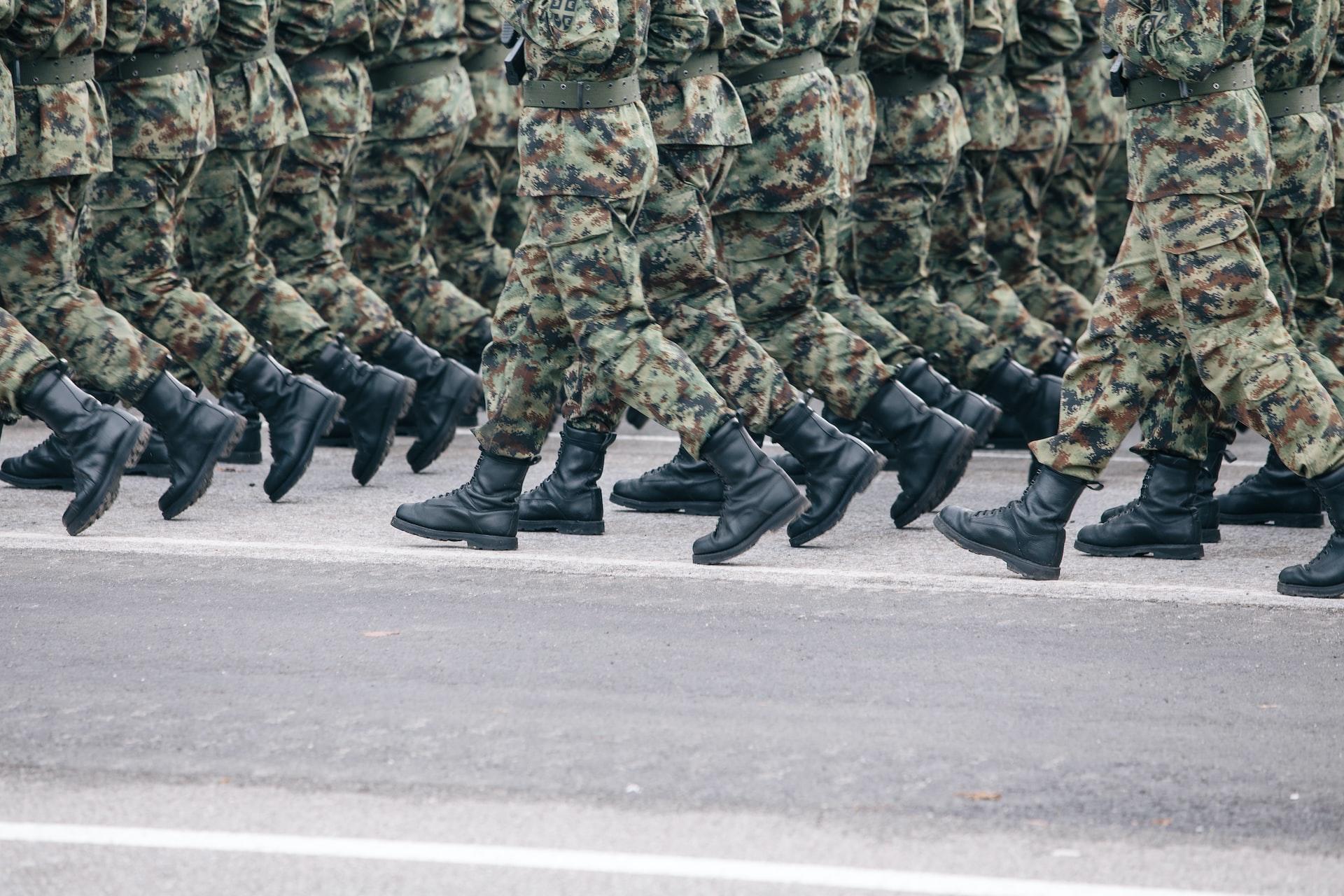Imagine waking up one day and suddenly being a year younger. Sounds like a marketing slogan for skincare, right? But in South Korea, this idea became reality—not through a miracle cream, but through a nationwide shift in how age is measured.
You’re one year old the day you’re born
Everyone gains a year together on January 1
Your actual birthday? Just a day to celebrate — your age doesn’t change
This traditional method, known as the Korean age, was more than just math. It shaped everyday life, social customs, school admissions, and even the way strangers greeted each other. It was a number tied not just to time, but to culture, respect, and a shared sense of rhythm in society. From a child's first birthday celebration to conversations between coworkers, age mattered deeply — and it still does.
But in June 2023, South Korea made a big change. The government officially adopted the international age system—one that the rest of the world uses. This reform brought simplicity to official records, legal processes, and yes, even those quirky age-related memes that confused fans of K-pop music around the globe.
How the Korean age system developed and why it was used for so long
The exact way Koreans used to calculate age — with real examples and a free calculator
What the new rules mean today in law, social settings, and daily interactions
Whether you’re visiting Korea, learning the language, diving into Korean dramas, or just figuring out why your Korean friend says they’re 25 when their passport says 23 — this guide will help you understand how age in Korea has evolved, and what it means in the current day.

Explained: How Korean Age Works Differently from Other Systems
While most of the world measures age based on one’s birthday, Koreans have long followed a distinct and culturally rooted method that doesn't align with international norms. It’s more than just a different counting method — it’s a tradition deeply tied to language, hierarchy, and identity. To truly understand Korea’s age systems, we need to explore not only how they work, but also how they shape daily life, from military service to school admission and even casual greetings.
Below, we’ll break down how this traditional system came to be, why it still holds cultural weight, and how recent law changes are shaping the way age is now considered in Korea.

What Is Korean Age and How Is It Used?
In the native Korean age system, everyone is considered one year old the moment they’re born — regardless of when in the year they arrive. Then, on January 1, everyone adds a year to their age. So, a child born on December 30 would be two years old just three days later. It’s a method that has puzzled outsiders and led to countless “age confusion” posts and viral reviews online.
Even after the adoption of the new international age system for official matters, this traditional counting is still in use across cultural and institutional spaces — particularly in schools, military service, and family life.
If you’re wondering how this applies to everyday interactions with Famous Korean Personalities, many still use their Korean age publicly — especially when appearing on variety shows or giving interviews. For example, actor Kim Soo-hyun might be considered a different age depending on whether he's speaking to local or international press.
Why Is Korean Age Different from the Rest of the World?
Interestingly, the origin of the Korean age system is unclear. There’s no confirmed historical document that explains why Koreans began counting age this way — only that it was likely tied to ancient East Asian timekeeping customs, where a person’s age increased with each New Year, rather than on their birthday.
Though this method was once used across much of Asia, South Korea is the only country that clung to it long-term. Most neighbouring countries dropped it decades ago. South Korea's enduring loyalty to this system can be attributed to how central age is to language and cultural respect.
The idea of changing the age system wasn’t just about simplifying bureaucracy — it meant challenging deep-rooted traditions, altering how people greet each other, and even tweaking school enrollment timelines and hiring standards. During the pandemic, this became especially visible. Vaccine distribution guidelines varied based on which age system was being followed, creating a moment of national confusion — a problem that might have been avoided with a more unified standard.

The Role of Age in Korean Language and Social Behaviour
Age in South Korea isn't just a number — it’s a framework for how society functions. The Korean language is built on age-based hierarchies, and knowing someone’s age helps you choose the correct tone, verb endings, and honorifics. It’s no exaggeration to say that you can’t hold a polite conversation in Korean without first figuring out the age dynamic.
That’s why the question “How old are you?” is often one of the first things Koreans ask each other — not out of rudeness, but out of a cultural need to position themselves properly in conversation.
The need to show respect based on sal is so baked into daily life that a shift in how age is calculated, even under law, doesn’t erase the social habits built over time. The traditional age might no longer matter in court documents, but it still lives on in group chats, family dinners, and even Popular Korean Food commercials where age-based puns are used for humour.
Examples That Highlight the Confusion
Let’s take one final example: someone born on December 31, 2000. By international age, they would turn 25 on December 31, 2025. But under the traditional Korean system, they were one year old the day they were born, and added another year on January 1, 2001 — making them 26 years old in early 2025.
Such discrepancies often show up in social settings, online profiles, and even age calculators used in schools or fan clubs. It’s not uncommon to see a “Korean age” listed alongside “International age” on Korean celebrity bios, which also adds to the fun — or confusion — when browsing profiles of your favourite K-pop idols or actors.
Although many free tools and calculators exist online now to help people “translate” their age, it's still something that often surprises newcomers to Korean society.

How to Calculate Korean Age: Traditional vs New Method
While the Korean age system might seem intimidating at first, calculating it is quite straightforward—once you understand the logic behind it. The process may differ slightly depending on the type of Korean age you're calculating, but there's no need to overcomplicate things. This section will walk you through how to calculate your Korean age, using authentic examples, helpful tips, and a practical approach that makes the concept less abstract and more actionable.
We'll also clarify the new method that was adopted officially in recent years, as well as some of the confusion that still lingers in casual use—especially in online bios, fan groups, and social settings. Let’s break it down clearly, so you can finally answer the question: “How old am I in Korea?”
Korean Age Formula: Get It Right
Calculating your Korean age begins with something simple: understanding the formula Koreans used traditionally. But unlike what some blog reviews may suggest, it’s not as easy as tacking on a random number to your age. Let's say you were born in 2000. In the Korean system:
- Take the current year (2025)
- Subtract your birth year (2000) → 25
- Then, add 1 year (since you're considered 1 year old at birth) → 26
That’s your Korean age: 26
There’s no need to wait for your birthday — that’s not how it works in this context. Everyone, whether born in January or December, follows the same system. But if this still sounds confusing, you can always use a free Korean age calculator online. Many sites allow you to input your birth year, and within seconds, it shows your Korean age based on the current year. These tools are widely shared, especially among fans of Korean movies, where actors' international and Korean ages are often displayed side by side in profiles.
Alternative Age System: A More Personalised Approach
In addition to the common Korean age formula, there's another method sometimes used that considers your actual birthday. This variation is often called the “year age” system, and it's used more casually, especially among younger generations and in non-official settings.
Here’s how it works:
- Start with your current international age
- Add 1 year if your birthday hasn’t occurred yet this year
- If your birthday has already passed, don’t add anything extra
For example, if you’re turning 25 this year but your birthday is in December and it’s still October, you’d be 26 in this Korean method.
This version is slightly more flexible and personalised. It’s sometimes more relatable for younger Koreans who consume content from both global and native platforms, and it often appears in native Korean apps or chat services when ages are displayed casually. This method has also gained popularity as Korea gradually transitions toward international standards.

Why a Calculator Still Helps
Despite the logic, many people still find themselves unsure of which age system applies where and how to say their age correctly, depending on the situation. That’s why calculators remain one of the most useful free tools available for anyone navigating Korean culture.
Whether you're filling out a form, checking how old your favourite manhwa character is, or browsing profiles of actors like Kim Seon-ho, having a calculator on hand eliminates the guesswork. Most online calculators only require your birth year, and some even let you choose the age method you want to calculate: Korean age, international age, or both.
Now that you’ve walked through the formulas and the reasoning behind them, calculating your Korean age shouldn’t feel like a puzzle anymore. Whether you rely on a free calculator or work it out manually, what matters is understanding which version applies to the situation. While official documents in Korea now follow international age, Korean age still plays a role in daily conversations, entertainment circles, and even in how people say their age casually in a chat.

Understanding the Korean Legal Age by Category
Legal age in South Korea is not just about when someone can drive or get married — it's closely tied to a deeper native understanding of culture, language, and respect. Though the country recently embraced a unified international-style age system, legal thresholds for various activities still carry the weight of cultural history.
From drinking and voting to marriage and military service, these milestones shape adult identity in uniquely Korean ways. And for outsiders, like those in Singapore who often engage with Korea through business or entertainment, knowing these rules can offer surprising insights into South Korean culture.
Let’s explore how the system works, how it’s changing, and what every man or woman should know when considering Korea’s age-based legal thresholds.
What Is Considered the Legal Age in Korea?
While the newer system simplifies everyday age calculations, legal minimums still vary by category. Here's what you should know:
- The legal drinking age in South Korea is 19.
- For marriage, the minimum age is 20 — unless parental consent is given.
- Driving rules differ depending on vehicle size: motorbikes (16+), cars (18+), and commercial vehicles (19+).
Although these categories are set by law, how they’re interpreted or enforced can sometimes reflect cultural nuances. For example, while the law may say 19, locals might still ask your age using the older method — out of habit or tradition.
Online forums and user reviews suggest that even native residents often use a Korean age calculator or app when confirming eligibility. It’s especially common when applying for government services or completing legal forms, where precision is necessary.
Comparing Legal Age Standards: Korea vs Singapore
To offer a clearer picture of how South Korea compares with other countries, here’s a side-by-side legal age breakdown with Singapore — a hub often connected to Korean pop culture and business:
| Activity | Korea (Age in Years) | Singapore (Age in Years) |
|---|---|---|
| Drinking alcohol | 19 | 18 |
| Driving (car) | 18 | 18 |
| Marriage (without consent) | 20 | 21 |
| Marriage (with consent) | 18 (men), 16 (women) | 18 |
| Voting | 18 | 21 |
| Criminal responsibility | 14 | 10 |
| Military enlistment | 18 | Voluntary (18+) |
Note: Singapore tends to be more conservative in certain areas like voting, while South Korea, despite its age system complexities, keeps civil thresholds relatively aligned with global norms.
Why Change the Korean Age System?
Korean age isn't just a nod to the traditional ways. It touches every social and civil aspect of Korean life, including language. Undoing all of that would take a herculean effort, and it would have to be exquisitely well planned. So why even consider changing it?
Do you remember reading that school enrolment ages rely on a system that ages everyone on the same day? Imagine being born in December. You'll automatically be assigned to a group of students all born in the same year as you, some of whom are a full 11 months older. And you must try to keep up with them intellectually, academically and developmentally.
Some of the most famous people in Korea have decried this system that paves the way for bullying and academic inequality. The South Korean education system is highly competitive. Putting students at an academic disadvantage simply because of a traditional system is grossly unfair.
Also, remember the honorifics system. If you're one of the youngest students in class, everyone is your 'big brother' (hyung) or big sister (nuna/eonni). That sounds adorable until you remember the competitive nature of student groups. South Korean students report bullying not just from more wealthy classmates but from their elders, as well.
From the introduction to this point, we’ve explored not just how age is counted, but how it defines identity, authority, and access across various life milestones. While tools like calculators help us decode these differences numerically, understanding age in Korea is about more than numbers.
It reflects values, native customs, and even social roles — something you’ll notice when watching dramas or reading about public figures like Kim, whose life reviews often reflect deeper societal expectations.
And though things are changing, age in Korea remains a mirror of both tradition and transformation — shaped by law, language, and time.
Summarise with AI:















I am extremely surprised
Great job dear 👍